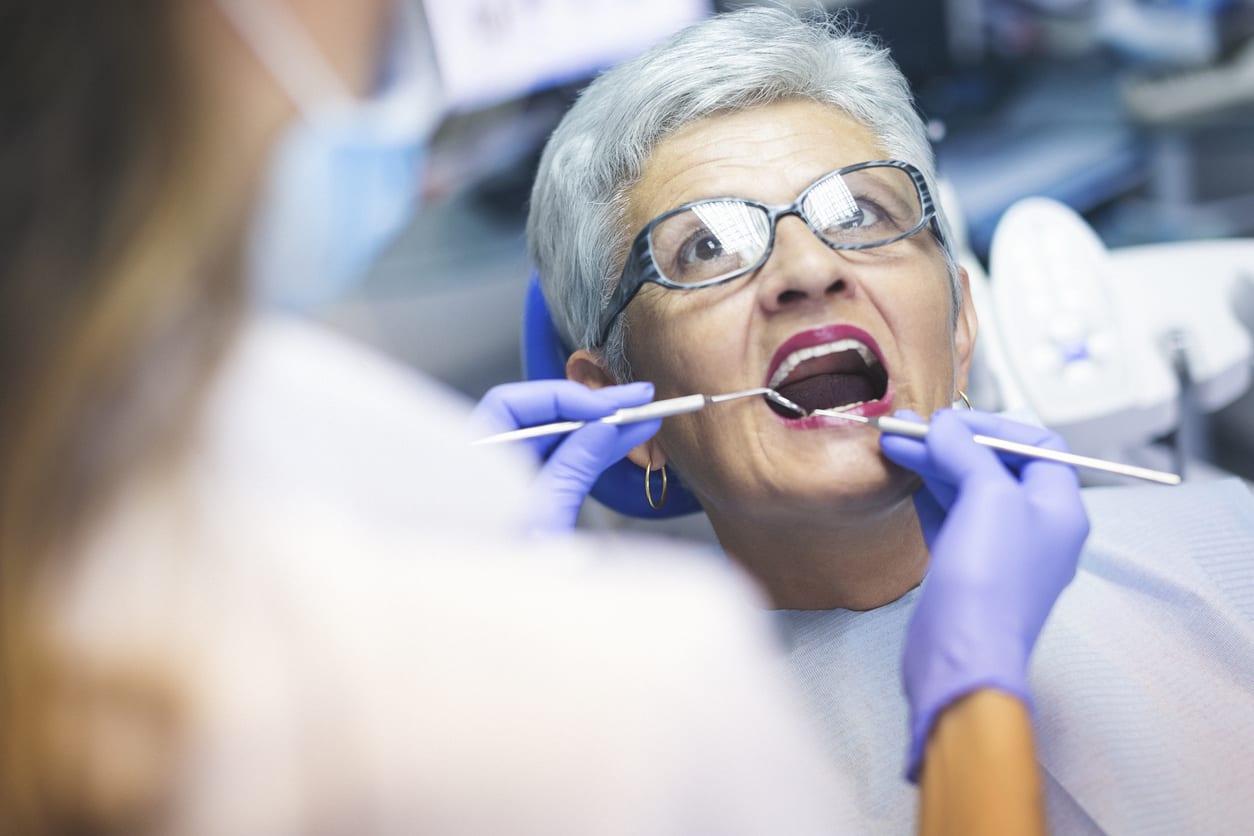While Medicare Supplement Insurance (Medigap) and Original Medicare (Medicare Part A and Part B) do not cover routine dental and vision care, Medigap plans can help beneficiaries pay for costs they may face if they get dental or vision care that are covered by Medicare. There are also other types of Medicare plans called Medicare Advantage plans that may provide routine dental and vision coverage.
Here’s how each type of Medicare dental and vision benefits can be provided.

Does Medicare Cover Dental and Vision?
Original Medicare covers some emergency dental care and cataract surgery.
Medicare Dental Coverage: Does Medicare Cover Dentures?
Original Medicare does not cover most dental care such as cleanings, fillings, tooth extractions, dentures, dental plates or other dental devices. However, Medicare Part A can pay for certain dental services performed in a hospital.
According to the Medicare.gov dental coverage rules, “Medicare Part A can pay for inpatient hospital care if you need to have emergency or complicated dental procedures, even though the dental care isn’t covered.”
Some situations in which Medicare may cover dental services are listed below.
- You need surgery to correct fractures of the jaw
- You need dental splints as a result of jaw surgery
- You need tooth extractions in preparation of radiation treatment for neoplastic diseases
- You receive a dental exam in a hospital before a heart valve replacement or kidney transplant
- You have oral cancer or another disease that affects the jaw and require dental services for treatment
Keep in mind that every situation is unique and you should speak with your doctor to find out if a specific dental service will be covered by Medicare.
Does Medicare Cover Dental?
Original Medicare might offer some vision coverage, but it is also restricted. Original Medicare does not cover routine eye exams for glasses or contact lenses.
Medicare Part B provides some limited vision care, but it won't pay for routine eye exams or glasses and contact lenses.
Medicare Part B does, however, cover the following vision benefits:
- Annual eye exams for beneficiaries suffering with diabetes
- Annual glaucoma testing for those at high risk for the disease
- Age-related macular degeneration diagnostic testing and treatment (for some)
- Cataract surgery and associated corrective lenses
- Prosthetic eyes
Medicare Part B will pay for 80% of the Medicare-approved amount for the procedure, and you will be response for the remaining 20%. Keep in mind that the Medicare Part B deductibles and copayments still apply.




